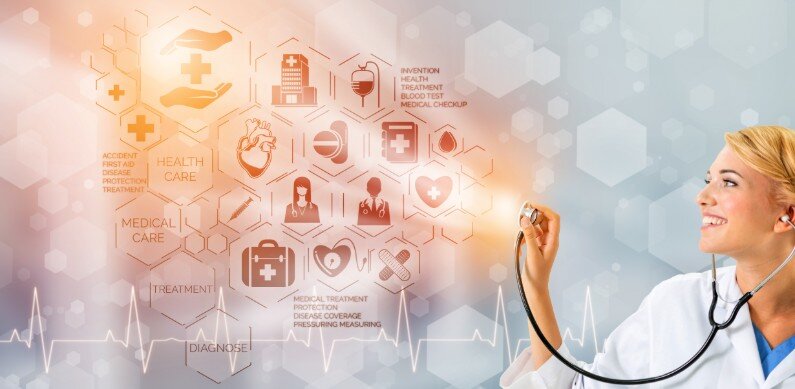Introduction
Biotechnology has emerged as a driving force behind groundbreaking innovations in the fields of health and medicine. With the convergence of biology, chemistry, and technology, scientists and researchers are pushing the boundaries of what is possible in healthcare. In this article, we will explore some of the most notable biotechnology breakthroughs that are transforming the landscape of medicine and improving human health.
The marriage of biology, chemistry, and technology in the realm of biotechnology has not only pushed the boundaries but shattered them, giving rise to a wave of transformative breakthroughs in healthcare and medicine. Let’s delve into some of the most remarkable and paradigm-shifting advancements that are reshaping the medical landscape and enhancing the well-being of individuals around the world:
1. Genomic Medicine Revolution:
- The decoding of the human genome and the emergence of precision medicine have ushered in an era of personalized healthcare. Genomic insights enable tailored treatments and therapies, optimizing outcomes for patients with conditions ranging from cancer to rare genetic disorders.
2. CRISPR-Cas9 Gene Editing:
- CRISPR-Cas9 technology has revolutionized genetic editing, allowing precise modification of DNA sequences. This holds immense potential for correcting genetic mutations, treating genetic diseases, and advancing gene therapies.
3. mRNA Vaccines:
- The development of mRNA vaccine technology has proven groundbreaking, as seen in the rapid creation of COVID-19 vaccines. This platform offers the potential to combat a wide range of infectious diseases and even pave the way for personalized cancer vaccines.
4. Immunotherapies:
- Immunotherapies, including immune checkpoint inhibitors and CAR-T cell therapies, are transforming cancer treatment. They harness the body’s immune system to target and destroy cancer cells, offering new hope to patients with previously untreatable malignancies.
5. 3D Bioprinting:
- 3D bioprinting technology is enabling the creation of intricate, functional human tissues and organs. This breakthrough has the potential to alleviate organ shortages and improve transplantation outcomes.
6. Artificial Intelligence (AI) in Healthcare:
- AI and machine learning are revolutionizing healthcare by analyzing vast datasets, aiding in diagnostics, predicting disease outbreaks, and personalizing treatment plans. These technologies enhance healthcare efficiency and accuracy.
7. Digital Health and Telemedicine:
- Digital health tools, mobile apps, and telemedicine platforms are making healthcare more accessible and convenient. Remote monitoring, virtual consultations, and health data analytics empower patients and providers alike.
8. Regenerative Medicine:
- Advancements in regenerative medicine hold promise for tissue repair and regeneration. Stem cell therapies and tissue engineering techniques are offering solutions for conditions like spinal cord injuries and degenerative diseases.
9. Biomarker Discovery:
- Identifying biomarkers through biotechnology enables early disease detection and tracking treatment responses. This aids in the development of targeted therapies and personalized medicine.
10. Drug Discovery Acceleration:
– Biotechnology accelerates drug discovery through high-throughput screening, molecular modeling, and AI-driven simulations. This expedites the development of novel pharmaceuticals and therapies.
11. Global Health Initiatives:
– Biotechnology plays a pivotal role in addressing global health challenges, such as combating infectious diseases, improving vaccine distribution, and enhancing healthcare access in underserved regions.
12. Ethical Considerations:
– The rapid pace of biotechnological advancements raises ethical questions regarding gene editing, privacy, and equitable access to cutting-edge treatments. Responsible research and ethical frameworks are essential.
In conclusion, the synergy of biology, chemistry, and technology within biotechnology is propelling the medical field into an era of unprecedented possibilities. These breakthroughs not only extend our understanding of the human body but also empower us to manipulate it for the betterment of health and well-being. As scientists and researchers continue to push the boundaries of what is achievable, the future of medicine shines brighter than ever, promising innovative solutions, improved healthcare outcomes, and a healthier world for all.
Looking for more insights? You’ll find them right here in our extended coverage: Acupuncture: Past, Present, and Future – PMC
Genomic Medicine
The sequencing of the human genome was a monumental achievement that laid the foundation for personalized medicine. Today, genomic medicine uses genetic information to tailor medical treatments to an individual’s unique genetic makeup. This approach has led to more effective treatments for conditions like cancer and rare genetic disorders.
The sequencing of the human genome was a monumental achievement that laid the foundation for personalized medicine. Today, genomic medicine uses genetic information to tailor medical treatments to an individual’s unique genetic makeup. This approach has led to more effective treatments for conditions like cancer and rare genetic disorders.
Early Disease Detection: Genomic medicine is advancing our ability to detect diseases at an early stage, often before symptoms manifest, allowing for timely intervention and improved outcomes.
Precision Cancer Treatment: Personalized cancer therapies target the specific genetic mutations driving a patient’s cancer, increasing treatment effectiveness while minimizing side effects.
Rare Disease Diagnostics: Genomic sequencing aids in diagnosing rare genetic disorders, enabling individuals to access specialized care and support.
Pharmacogenomics: Tailoring drug prescriptions based on genetics helps avoid adverse reactions and optimize medication efficacy.
Informed Family Planning: Genetic information can inform family planning decisions, particularly in cases where hereditary conditions are a concern.
Personalized Nutrition and Lifestyle: Genomic insights can guide personalized nutrition and lifestyle recommendations, promoting better health and disease prevention.
Data Sharing and Research: Genomic databases facilitate collaborative research, leading to discoveries of new disease associations and potential therapies.
Ethical Considerations: The ethical implications of genetic testing and data privacy are ongoing concerns that require careful consideration and regulation.
Healthcare Access: Ensuring equitable access to genomic medicine is crucial, as it can be expensive and may not be readily available to all populations.
Education and Counseling: Genetic counseling and education are vital components of genomic medicine, helping individuals make informed decisions about their health.
Integration with Electronic Health Records: Seamlessly integrating genomic data into electronic health records enhances its utility for healthcare providers.
Global Collaboration: International collaboration in genomic research and data sharing accelerates progress and ensures diverse genetic representation.
Rare Disease Research: Genomic medicine contributes to a deeper understanding of rare diseases, potentially leading to more targeted therapies.
Long-term Health Management: Genomic information can guide long-term health management plans, allowing individuals to take proactive measures to maintain their well-being.
Clinical Trials: Genomic profiling is increasingly used in patient recruitment for clinical trials, ensuring that participants are more likely to benefit from experimental treatments.
Future Potential: Continued advancements in genomics hold promise for addressing complex diseases and conditions with a genetic component.
Genomic medicine represents a paradigm shift in healthcare, moving from a one-size-fits-all approach to a personalized and data-driven model. As our understanding of genetics deepens and technology continues to evolve, the potential for improving individual health and advancing medical science remains boundless.

Gene Editing Technologies
CRISPR-Cas9, a revolutionary gene-editing tool, has opened the door to precise and targeted modification of the human genome. Researchers are exploring its potential to treat genetic diseases, create genetically modified organisms for drug production, and develop novel therapies for a wide range of conditions.
CRISPR-Cas9’s groundbreaking potential extends far beyond the horizons of traditional medical and biological research. Here’s an in-depth look at the wide-ranging applications and implications of this revolutionary gene-editing tool:
Precision Medicine: CRISPR-Cas9 has the power to revolutionize the field of medicine by enabling highly personalized treatments. By targeting specific genetic mutations responsible for diseases, researchers can develop therapies tailored to individual patients, improving both the effectiveness and safety of medical interventions.
Genetic Disease Eradication: In the realm of genetic diseases, CRISPR-Cas9 holds the promise of correcting or mitigating inherited disorders like cystic fibrosis, sickle cell anemia, and muscular dystrophy. This opens the door to potential cures and a significant reduction in the global burden of genetic ailments.
Cancer Treatment: Researchers are actively exploring CRISPR-Cas9’s potential in cancer therapy. This includes modifying immune cells to better target cancerous cells, enhancing the precision of radiation therapy, and even directly editing cancer-causing genetic mutations.
Agriculture and Food Production: CRISPR-Cas9 is transforming agriculture by creating genetically modified organisms (GMOs) with desirable traits such as resistance to pests, improved crop yields, and enhanced nutritional content. These innovations have the potential to address food security challenges and reduce the environmental impact of agriculture.
Drug Development: CRISPR-Cas9 facilitates more efficient drug discovery and development. By precisely modeling diseases in the laboratory, researchers can accelerate the testing of potential therapies, bringing new drugs to market faster and at lower costs.
Conservation: Conservationists are exploring CRISPR-Cas9 to protect endangered species and restore ecosystems. It offers a tool for editing the genomes of threatened animals and combating invasive species.
Human Enhancement and Ethical Considerations: CRISPR-Cas9 also raises profound ethical questions about the possibility of human enhancement through genetic modification. The debate around designer babies and ethical boundaries in gene editing continues to evolve.
Global Accessibility: Ensuring equitable access to CRISPR-Cas9 technologies is a priority. Balancing the potential for genetic therapies with concerns about accessibility and affordability is a complex challenge.
Regulatory Frameworks: Governments and international organizations are developing regulatory frameworks to oversee the responsible use of CRISPR-Cas9. Balancing innovation with ethical considerations and ensuring safety are central to these efforts.
Unknown Frontiers: CRISPR-Cas9’s true potential may still contain surprises. Researchers are continually discovering new applications and refining the technology, opening up previously uncharted frontiers in biology, medicine, and beyond.
In conclusion, CRISPR-Cas9 represents a transformative force in science and biotechnology. Its applications span from the realm of medicine to agriculture, conservation, and beyond. As research and innovation in gene editing continue to advance, society faces not only unprecedented opportunities but also profound ethical and regulatory challenges. The responsible and ethical use of CRISPR-Cas9 is critical to harnessing its full potential for the betterment of humanity and the world we inhabit.
Looking for more insights? You’ll find them right here in our extended coverage: Advances in CRISPR/Cas9 – PMC
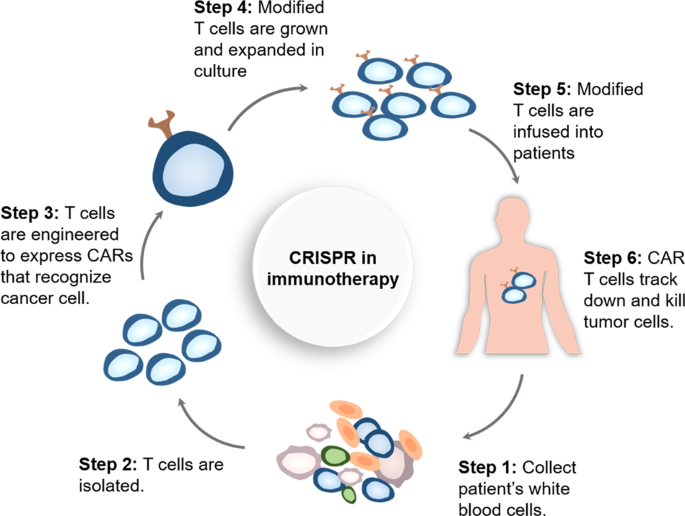
mRNA Vaccines
The development and rapid deployment of mRNA vaccines, such as those for COVID-19, represent a paradigm shift in vaccine technology. These vaccines harness the body’s own cells to produce an immune response, offering a faster and more adaptable approach to vaccine development.
The advent of mRNA vaccines marks a watershed moment in the history of immunization:
1. Vaccine Agility: Unlike traditional vaccines, which often require the cultivation of the virus or pathogen, mRNA vaccines provide a faster route to vaccine development. This agility is particularly critical in responding to emerging infectious diseases, as demonstrated during the COVID-19 pandemic.
2. Tailored Solutions: mRNA vaccines offer a level of customization that was previously unimaginable. Scientists can swiftly adapt the mRNA sequence to target different pathogens or variants, providing a versatile and adaptable defense against evolving threats.
3. Reduced Manufacturing Complexity: The production of mRNA vaccines is inherently simpler than traditional vaccine manufacturing processes. This simplicity translates to quicker production ramp-up, allowing for a more rapid response to public health emergencies.
4. Minimal Risk of Infection: Since mRNA vaccines do not contain live pathogens, there is no risk of causing the disease they are designed to protect against. This safety profile is particularly crucial for individuals with compromised immune systems or other health conditions.
5. Global Health Impact: The success of mRNA vaccines in combating COVID-19 has generated enthusiasm for their application in addressing other infectious diseases and even certain cancers. The potential to impact global health outcomes is immense, offering hope for the control and eradication of a wide range of diseases.
6. Platform for Future Innovations: mRNA vaccine technology provides a versatile platform for developing novel therapeutics beyond vaccines. Researchers are exploring its potential in cancer immunotherapy, autoimmune disease management, and other medical interventions.
7. Public Perception and Acceptance: The rapid development and deployment of mRNA vaccines have raised awareness about vaccine technology and the importance of vaccination. This heightened public awareness can have positive implications for vaccine acceptance and uptake in the future.
As mRNA vaccine technology continues to evolve and find applications beyond infectious diseases, its promise extends to a wide array of medical and public health challenges. The paradigm shift brought about by mRNA vaccines not only offers hope for rapid responses to future pandemics but also opens the door to innovative solutions for some of the most pressing health issues of our time.
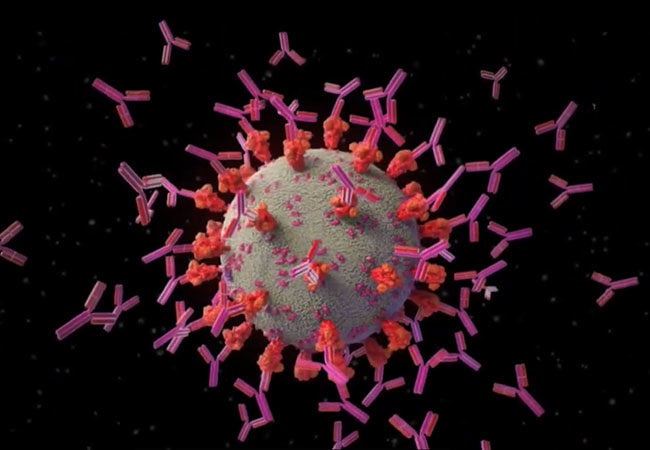
Advanced Diagnostics
Biotechnology has led to the development of highly sensitive and specific diagnostic tests. From early cancer detection to non-invasive prenatal testing, these diagnostics enable early intervention and improved patient outcomes.
Biotechnology’s impact on diagnostics cannot be overstated, as it has ushered in a new era of highly precise and sensitive tests that are transforming healthcare in remarkable ways. Here’s an in-depth look at how biotechnology is revolutionizing diagnostics and its profound implications for early intervention and patient outcomes:
1. Early Cancer Detection:
- Biotechnology-driven diagnostic tests have revolutionized cancer detection. Liquid biopsies, for example, analyze circulating tumor DNA, enabling the early identification of cancer, even before symptoms manifest. This early detection is a game-changer, as it allows for timely intervention and improved survival rates.
2. Non-Invasive Prenatal Testing (NIPT):
- NIPT is a prime example of the power of biotechnology in prenatal care. It uses advanced genetic testing to screen for chromosomal abnormalities in the fetus through a simple maternal blood draw. This non-invasive approach reduces the risk associated with traditional invasive procedures, such as amniocentesis.
3. Infectious Disease Diagnostics:
- Biotechnology has facilitated the development of rapid and highly sensitive tests for infectious diseases, such as HIV, tuberculosis, and COVID-19. These tests enable early diagnosis, immediate treatment, and effective disease management, ultimately saving lives and curbing the spread of infections.
4. Personalized Medicine:
- Biotech-driven diagnostics are at the core of personalized medicine. Genetic tests assess an individual’s unique genetic makeup, informing healthcare providers about drug responses, disease susceptibility, and treatment options tailored to the patient’s genetic profile. This precision medicine approach minimizes adverse reactions and maximizes treatment efficacy.
5. Biomarker Discovery:
- Biotechnology accelerates the discovery of biomarkers—indicators of specific diseases or conditions. These biomarkers serve as the foundation for diagnostic tests, allowing for the early identification of diseases like Alzheimer’s, diabetes, and cardiovascular conditions.
6. Point-of-Care Testing:
- Portable, biotech-driven point-of-care devices are transforming healthcare delivery. These compact diagnostic tools provide immediate results at the patient’s bedside or in remote locations, ensuring timely decisions and interventions.
7. Monitoring and Disease Management:
- Continuous monitoring through biotech-based diagnostic devices empowers patients and healthcare providers to track chronic conditions like diabetes, hypertension, and heart disease. This real-time data informs treatment adjustments and lifestyle modifications.
8. Precision Pathology:
- Biotechnology enhances pathology through digital imaging, molecular diagnostics, and artificial intelligence. Pathologists can analyze tissue samples with unprecedented precision, aiding in accurate disease diagnosis and treatment planning.
9. Early Intervention and Proactive Healthcare:
- Early detection through biotech diagnostics allows for proactive healthcare. Detecting diseases at their earliest stages often means less invasive treatments, shorter recovery times, and improved overall outcomes for patients.
10. Reducing Healthcare Costs:
– Timely diagnosis and early intervention can lead to cost savings by preventing disease progression and reducing the need for complex and expensive treatments.
11. Ethical Considerations:
– Biotechnology’s diagnostic capabilities raise ethical questions related to privacy, informed consent, and equitable access to advanced testing. Ethical frameworks are essential to navigate these complexities.
In essence, biotechnology has empowered healthcare with the ability to detect diseases earlier, tailor treatments to individual genetic profiles, and provide patients with the best possible care. The impact of biotech diagnostics extends far beyond laboratory results; it translates into improved quality of life, enhanced treatment outcomes, and the promise of a healthier, more resilient global population. As biotechnology continues to advance, the future holds even more potential for innovative diagnostics that redefine the practice of medicine.
Explore this link for a more extensive examination of the topic: The rise of artificial intelligence in healthcare applications – PMC
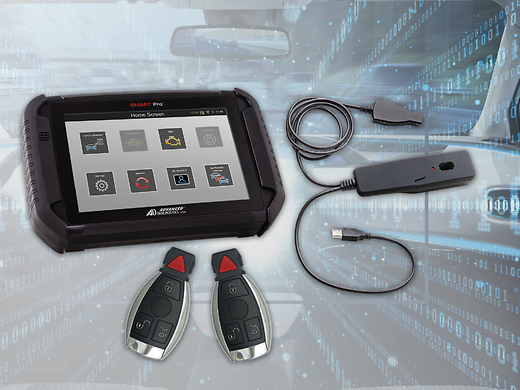
Regenerative Medicine
Regenerative medicine harnesses the body’s innate ability to heal and regenerate tissues. Stem cell therapies and tissue engineering techniques are being explored for applications ranging from organ transplantation to the repair of damaged spinal cords.
Regenerative medicine harnesses the body’s innate ability to heal and regenerate tissues. Stem cell therapies and tissue engineering techniques are being explored for applications ranging from organ transplantation to the repair of damaged spinal cords.
- Tissue Engineering: Scientists are developing artificial tissues and organs using a combination of scaffolds, cells, and growth factors. These bioengineered tissues have the potential to replace or repair damaged body parts.
- Stem Cell Therapies: Stem cells, with their remarkable ability to transform into various cell types, are at the forefront of regenerative medicine. They hold promise for treating conditions such as heart disease, diabetes, and neurodegenerative disorders.
- Organ Transplantation: The shortage of donor organs has driven research into growing transplantable organs in the lab. This could eliminate waiting lists and improve the success of organ transplants.
- Neuroregeneration: Regenerative medicine is exploring ways to repair spinal cord injuries, restore neural function, and treat conditions like Parkinson’s disease and Alzheimer’s.
- Cardiac Regeneration: Heart tissue damaged by heart attacks or disease may be regenerated using stem cells or other techniques, potentially reducing the need for heart transplants.
- Orthopedic Repair: Regenerative therapies aim to restore damaged bones and cartilage, providing alternatives to joint replacements and improving the quality of life for patients with orthopedic conditions.
- Wound Healing: Regenerative medicine offers innovative solutions for chronic wound healing, particularly in patients with diabetes.
- Cancer Immunotherapy: In the field of oncology, immunotherapies that harness the body’s immune system to target cancer cells are showing promise in achieving long-term remission.
- Ethical Considerations: The use of stem cells, especially embryonic stem cells, raises ethical questions that require careful navigation and regulation.
- Clinical Trials: Rigorous clinical trials are essential to ensure the safety and efficacy of regenerative therapies before they become widely available.
- Regulatory Pathways: Developing clear regulatory pathways for these innovative treatments is crucial to balancing innovation with safety.
- Global Collaboration: International collaboration in regenerative medicine research can accelerate progress and pool resources for addressing complex health challenges.
- Affordability and Access: Making regenerative therapies affordable and accessible to a broad population is a significant challenge that requires consideration.
- Public Awareness: Raising public awareness about the potential and limitations of regenerative medicine can foster understanding and support for research and development efforts.
- Translational Research: Bridging the gap between laboratory discoveries and clinical applications is a key focus for regenerative medicine.
- Long-term Monitoring: Long-term monitoring of patients receiving regenerative therapies is crucial to assess safety and track outcomes over time.
Regenerative medicine holds immense promise in revolutionizing healthcare by offering innovative treatments that go beyond symptom management to address the root causes of diseases and injuries. As research and development in this field continue to advance, the potential to improve the quality of life for countless individuals and extend human lifespan grows ever more significant.
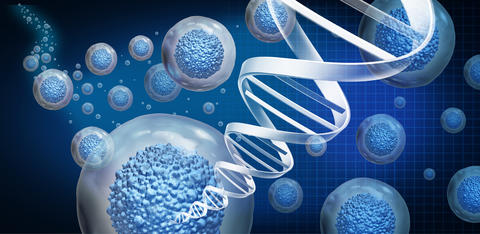
Drug Discovery and Development
Biotechnology has revolutionized the drug discovery process, leading to the creation of targeted therapies and precision medicine. This approach minimizes side effects and maximizes therapeutic benefits, improving patient quality of life.
The impact of biotechnology on drug discovery and healthcare is nothing short of revolutionary, ushering in a new era of precision and effectiveness. Let’s delve deeper into the profound changes it has brought about:
Targeted Therapies: Biotechnology has enabled the development of targeted therapies that pinpoint specific molecules or pathways responsible for diseases. Unlike traditional treatments that affect both healthy and diseased cells, these therapies are finely tuned to combat the root causes of ailments. This results in more effective treatments with fewer side effects.
Personalized Medicine: Advances in biotechnology have paved the way for personalized medicine. By analyzing an individual’s genetic makeup and biomarkers, healthcare providers can tailor treatment plans to suit each patient’s unique needs. This not only improves the chances of successful treatment but also minimizes adverse reactions.
Rare Diseases and Orphan Drugs: Biotechnology has made it economically viable to develop treatments for rare diseases. Previously neglected conditions now have dedicated research efforts, resulting in the creation of orphan drugs that bring hope and relief to previously underserved patient populations.
Vaccines and Immunotherapy: Biotechnology plays a pivotal role in vaccine development, enabling rapid responses to emerging infectious diseases. Furthermore, immunotherapy, a groundbreaking approach that harnesses the body’s own immune system to fight cancer and other diseases, owes much of its success to biotechnology.
Gene Editing and CRISPR: The advent of gene editing techniques like CRISPR-Cas9 has revolutionized the way we approach genetic disorders. It holds the potential to cure genetic diseases at their source by precisely editing faulty genes.
Drug Screening and Testing: Biotechnology has made drug screening and testing more efficient and accurate. High-throughput screening techniques, coupled with the use of human cells in early-stage testing, reduce the reliance on animal testing and speed up the drug development process.
Biological Manufacturing: Biotechnology has transformed the production of pharmaceuticals. Biologics, which are drugs produced using living organisms, have become increasingly common due to their effectiveness. This shift has also led to advancements in bioprocessing and fermentation technologies.
Drug Repurposing: Biotechnology enables the systematic exploration of existing drugs for new applications. This approach, known as drug repurposing or repositioning, has uncovered novel uses for existing medications, accelerating the availability of treatments.
Data and AI: Biotechnology generates vast amounts of data. Artificial intelligence and machine learning are now employed to analyze this data, leading to better understanding of disease mechanisms and more efficient drug discovery.
Global Health and Access: Biotechnology has the potential to address global health challenges by facilitating the development of affordable treatments for diseases that disproportionately affect underserved populations.
In conclusion, biotechnology has not only transformed drug discovery but has also redefined the entire landscape of healthcare. The shift toward precision medicine, targeted therapies, and personalized treatments represents a profound shift in our approach to diseases. As biotechnology continues to advance, it holds the promise of even more groundbreaking discoveries and life-changing treatments that will benefit individuals and society as a whole.
Don’t stop here; you can continue your exploration by following this link for more details: Executive Order on Advancing Biotechnology and Biomanufacturing …

Artificial Intelligence in Healthcare
AI and machine learning algorithms are helping healthcare professionals make more accurate diagnoses, predict disease outcomes, and personalize treatment plans. These technologies have the potential to significantly reduce medical errors and improve patient care.
The integration of AI and machine learning in healthcare is catalyzing transformative changes in diagnosis, treatment, and patient care:
1. Enhanced Diagnostic Accuracy: AI-driven diagnostic tools can analyze vast amounts of patient data, including medical images, lab results, and patient histories, to identify patterns and anomalies that might elude human observers. This leads to earlier and more accurate disease detection, improving patient outcomes.
2. Predictive Healthcare: Machine learning algorithms can predict disease progression and patient outcomes with a high degree of accuracy. By analyzing historical patient data, genetics, and environmental factors, healthcare providers can proactively manage chronic conditions and personalize treatment plans to optimize results.
3. Personalized Medicine: AI enables the creation of personalized treatment plans tailored to an individual’s unique genetics, physiology, and medical history. This approach minimizes adverse reactions to medications, reduces side effects, and increases treatment efficacy.
4. Drug Discovery and Development: AI accelerates drug discovery by analyzing vast datasets to identify potential drug candidates and predict their safety and efficacy. This streamlines the drug development process, potentially bringing new treatments to market more quickly.
5. Clinical Decision Support: AI-powered clinical decision support systems provide healthcare professionals with real-time guidance based on the latest medical knowledge and patient data. This assists doctors in making informed decisions, reducing medical errors, and improving patient safety.
6. Resource Optimization: Machine learning algorithms can optimize hospital operations by predicting patient admissions, staff scheduling, and resource allocation. This leads to more efficient healthcare delivery, shorter wait times, and improved patient experiences.
7. Telemedicine and Remote Monitoring: AI-driven telemedicine platforms enable remote patient consultations and monitoring. This has become particularly valuable during the COVID-19 pandemic and can enhance healthcare accessibility, especially in underserved areas.
8. Data Security and Privacy: As healthcare generates vast amounts of sensitive data, AI is also employed in cybersecurity to safeguard patient information. Machine learning algorithms can detect and mitigate security breaches and protect patient privacy.
9. Addressing Healthcare Disparities: AI can help identify and address healthcare disparities by analyzing demographic and geographic data to ensure that healthcare resources are distributed equitably.
10. Continuous Learning: AI systems continually learn from new data, enabling them to improve their diagnostic accuracy and treatment recommendations over time. This iterative learning process enhances the quality of care provided.
The incorporation of AI and machine learning into healthcare represents a promising path forward, with the potential to revolutionize patient care, reduce healthcare costs, and improve public health outcomes. However, it also raises important ethical considerations related to data privacy, algorithm transparency, and equitable access to advanced healthcare technologies. As these technologies continue to evolve, striking a balance between innovation and responsibility will be essential to fully realize their potential for the benefit of patients and healthcare systems worldwide.
Don’t stop here; you can continue your exploration by following this link for more details: Executive Order on Advancing Biotechnology and Biomanufacturing …
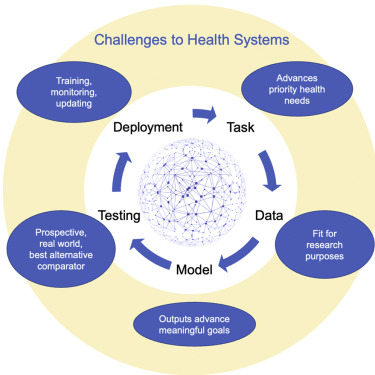
3D Printing in Medicine
3D printing technology is transforming the manufacturing of medical devices, prosthetics, and even organs. Customized implants and prosthetics are now more accessible, enhancing the quality of life for individuals with disabilities.
The advent of 3D printing technology has not only revolutionized manufacturing but has also left an indelible mark on the field of healthcare. The impact of 3D printing is profound, extending beyond medical devices and prosthetics to the realm of tissue engineering and organ transplantation. Let’s explore how this transformative technology is reshaping healthcare and improving the lives of countless individuals:
1. Customized Medical Devices:
- 3D printing allows for the creation of highly customized medical devices tailored to an individual’s unique anatomy. From orthopedic implants to dental crowns and hearing aids, these personalized solutions optimize comfort, functionality, and patient outcomes.
2. Patient-Specific Prosthetics:
- For individuals with limb loss or limb differences, 3D printing has revolutionized the field of prosthetics. Prosthetic limbs can now be precisely designed and fitted to match the patient’s specific needs and preferences, enhancing mobility and quality of life.
3. Complex Surgical Planning:
- Surgeons are increasingly relying on 3D-printed anatomical models to plan and rehearse intricate procedures. These models provide a tangible, three-dimensional representation of a patient’s anatomy, allowing for better visualization and precision during surgery.
4. Tissue Engineering and Regenerative Medicine:
- 3D bioprinting is at the forefront of tissue engineering and regenerative medicine. Researchers are using this technology to create living tissue constructs, including skin, bone, and cartilage, for transplantation and tissue repair.
5. Organ Transplantation Breakthroughs:
- Perhaps the most groundbreaking application of 3D printing in healthcare is the potential to bioprint organs. Researchers are making significant strides in developing functional organs, such as kidneys and hearts, using a patient’s own cells. This has the potential to revolutionize organ transplantation and eliminate long waiting lists.
6. Rapid Prototyping and Innovation:
- 3D printing accelerates the development and testing of medical devices and prototypes. Innovators can quickly iterate designs, reducing time-to-market for groundbreaking medical technologies.
7. Accessibility and Cost Reduction:
- 3D printing democratizes healthcare by making custom medical solutions more accessible and cost-effective. This technology reduces the need for extensive tooling and production lines, ultimately lowering manufacturing costs.
8. Dental Restorations:
- Dentistry benefits from 3D printing with the creation of precise dental crowns, bridges, and orthodontic devices. Patients experience improved comfort and aesthetics in their dental treatments.
9. Improved Patient Outcomes:
- The precision and customization afforded by 3D printing result in improved patient outcomes. Reduced post-operative complications, better-fitting devices, and shorter recovery times contribute to enhanced overall well-being.
10. Ethical Considerations and Regulation:
– As 3D printing in healthcare advances, ethical concerns related to patient consent, data security, and quality control become paramount. Regulatory bodies are adapting to ensure safety and efficacy in medical applications.
In conclusion, 3D printing technology has unlocked new frontiers in healthcare, offering tailored solutions, improving surgical precision, and paving the way for groundbreaking advancements in organ transplantation and tissue engineering. The impact of 3D printing extends far beyond individual patient cases; it holds the promise of a more accessible, personalized, and innovative healthcare landscape. As this technology continues to evolve, its potential to transform healthcare remains limitless, offering hope to patients, researchers, and healthcare professionals alike.

Synthetic Biology
Synthetic biology allows scientists to design and engineer biological systems for specific purposes. This technology has applications in drug production, biofuel development, and the creation of biosensors for disease monitoring.
Synthetic biology allows scientists to design and engineer biological systems for specific purposes. This technology has applications in drug production, biofuel development, and the creation of biosensors for disease monitoring.
- Customized Microorganisms: Synthetic biology enables the design of microorganisms with tailored genetic traits for enhanced production of pharmaceuticals, biofuels, and chemicals.
- Pharmaceutical Advancements: The ability to engineer biological systems has accelerated drug discovery and development, leading to novel therapies for a range of diseases, including cancer and rare genetic disorders.
- Biofuel Production: Synthetic biology plays a pivotal role in optimizing biofuel production processes, making renewable and sustainable energy sources more viable.
- Bioremediation: Engineered microorganisms can help clean up environmental pollutants, contributing to environmental conservation and restoration efforts.
- Precision Agriculture: Synthetic biology is used to create genetically modified crops with improved resistance to pests, diseases, and environmental stressors, enhancing crop yields and food security.
- Biosensors: Advanced biosensors engineered through synthetic biology can detect specific biomarkers, enabling rapid and accurate disease diagnosis and monitoring.
- Vaccine Development: Synthetic biology accelerates the development of vaccines against emerging infectious diseases, providing a crucial tool for pandemic preparedness.
- Bioinformatics: The integration of synthetic biology with bioinformatics allows for the design and modeling of complex biological systems, facilitating more precise engineering.
- Regenerative Medicine: Synthetic biology holds potential in regenerative medicine by enabling the design of tissues and organs for transplantation, reducing reliance on donor organs.
- Ethical Considerations: As with any technology involving genetic manipulation, ethical considerations surrounding synthetic biology include responsible research and potential unintended consequences.
- Safety Protocols: Developing robust safety protocols is essential to prevent the unintentional release of engineered organisms into the environment.
- Regulation: Establishing regulatory frameworks to ensure the safe and responsible use of synthetic biology is a priority for the field.
- Education and Outreach: Public awareness and understanding of synthetic biology and its potential benefits and risks are crucial for informed decision-making.
- Interdisciplinary Collaboration: Collaboration among biologists, engineers, chemists, and computer scientists is essential to advancing synthetic biology.
- Global Impact: The global nature of synthetic biology research calls for international cooperation to address shared challenges and harness its full potential.
Synthetic biology represents a revolutionary approach to solving complex problems in fields as diverse as healthcare, agriculture, energy, and environmental conservation. Its interdisciplinary nature and potential for innovation make it a driving force behind the development of sustainable and transformative solutions to some of the world’s most pressing challenges.
Looking for more insights? You’ll find them right here in our extended coverage: Synthetic biology advances and applications in the biotechnology …
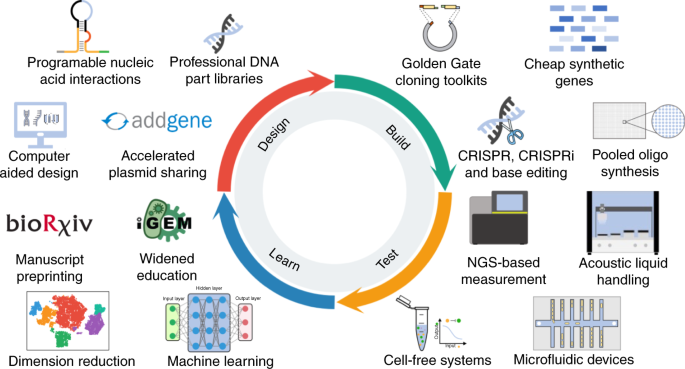
Biopharmaceuticals
Biopharmaceuticals, including monoclonal antibodies and cell therapies, are at the forefront of cancer treatment and autoimmune disease management. These biologically derived drugs target specific pathways in the body, offering improved therapeutic outcomes.
The realm of biopharmaceuticals stands as a testament to the remarkable progress in medical science, particularly in the treatment of cancer and autoimmune diseases. Let’s explore how these groundbreaking biologically derived drugs are reshaping the landscape of disease management:
Monoclonal Antibodies: Monoclonal antibodies have emerged as potent warriors in the fight against diseases. Engineered to target specific antigens or proteins associated with cancer cells or autoimmune responses, these antibodies offer highly precise and effective treatments. By binding to their designated targets, they can neutralize or trigger immune responses against harmful cells.
Cancer Immunotherapy: Biopharmaceuticals have sparked a revolution in cancer treatment through immunotherapy. Checkpoint inhibitors, a type of immunotherapy, unleash the immune system’s power to recognize and attack cancer cells. Drugs like pembrolizumab and nivolumab have demonstrated remarkable success in treating various types of cancer, offering renewed hope to patients.
CAR-T Cell Therapy: Chimeric Antigen Receptor T-cell (CAR-T) therapy exemplifies the pinnacle of precision medicine. It involves genetically modifying a patient’s own T-cells to express CARs that recognize and destroy cancer cells with extraordinary accuracy. CAR-T therapies like Kymriah and Yescarta have delivered remarkable results in certain forms of blood cancer.
Autoimmune Disease Management: Biopharmaceuticals have revolutionized the management of autoimmune diseases like rheumatoid arthritis, multiple sclerosis, and psoriasis. Drugs like adalimumab and rituximab target specific components of the immune system responsible for autoimmune responses, alleviating symptoms and improving patients’ quality of life.
Biological Signaling Pathways: Biopharmaceuticals delve deep into the body’s biological signaling pathways. By disrupting specific molecular interactions and processes, they can halt the progression of diseases and even induce remission.
Minimizing Side Effects: The precision of biopharmaceuticals translates to a reduced risk of adverse side effects compared to traditional treatments like chemotherapy. Patients experience fewer toxicities, leading to an improved overall treatment experience.
Combination Therapies: Biopharmaceuticals offer the flexibility to combine different treatments for synergistic effects. This approach maximizes therapeutic outcomes and opens new avenues for treatment strategies.
Personalized Treatment: Biopharmaceuticals align with the principles of personalized medicine. By tailoring treatments to an individual’s unique genetic and biological profile, healthcare providers can achieve better results while minimizing unnecessary interventions.
Biosimilars: The development of biosimilars, which are highly similar versions of biopharmaceuticals, is expanding access to these life-changing therapies. Biosimilars offer cost-effective alternatives without compromising efficacy and safety.
Ongoing Research: Biopharmaceutical research is an ever-evolving field, with ongoing efforts to discover new targets and therapeutic approaches. This continuous innovation promises an even brighter future for patients with cancer and autoimmune diseases.
In conclusion, biopharmaceuticals have ushered in a new era of precision medicine, offering hope and healing to individuals battling cancer and autoimmune diseases. Their ability to target specific disease pathways and minimize side effects is a testament to the incredible progress in medical science. As research continues to advance, the potential for biopharmaceuticals to revolutionize disease management across various medical conditions remains an exciting and promising prospect.
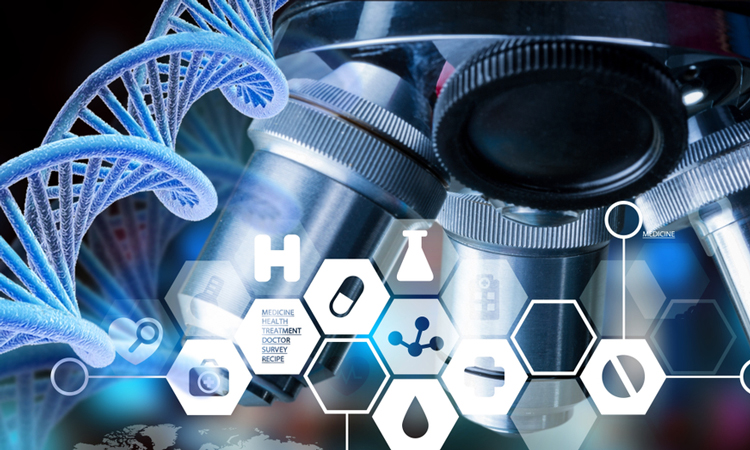
Conclusion
Biotechnology breakthroughs continue to shape the future of healthcare and medicine. From precision therapies based on genetic information to revolutionary vaccines and regenerative medicine, biotechnology is driving progress at an unprecedented pace. As researchers and scientists continue to push the boundaries of what is possible, we can anticipate even more remarkable advancements that will enhance human health and extend our understanding of the biological world. Biotechnology is not only transforming the practice of medicine but also offering hope for a healthier and more resilient future.
The relentless pace of biotechnology innovation is propelling healthcare and medicine into uncharted territories, with exciting prospects and limitless potential:
1. Unraveling Disease Mysteries: Biotechnology is equipping researchers with powerful tools to decode the intricate mechanisms of diseases, uncovering their origins at the molecular level. This deeper understanding enables the development of targeted therapies that combat diseases at their root causes, offering newfound hope for patients with previously untreatable conditions.
2. Personalized Health: The era of one-size-fits-all medicine is fading into the past. Biotechnology empowers healthcare providers to craft treatments and interventions customized to each patient’s unique genetic makeup, lifestyle, and medical history. This personalization not only maximizes treatment effectiveness but also minimizes adverse effects.
3. Regenerative Miracles: Regenerative medicine is evolving from science fiction to clinical reality. Stem cell therapies, tissue engineering, and organ transplantation innovations are poised to revolutionize healthcare. Patients with damaged organs, spinal cord injuries, or degenerative conditions can look forward to regenerative solutions that promise to restore function and quality of life.
4. Vaccines at Warp Speed: The race to develop vaccines for emerging pathogens, epitomized by the COVID-19 mRNA vaccines, showcases biotechnology’s agility and adaptability. These platforms offer the potential for rapid vaccine development against future infectious threats, protecting global populations more effectively.
5. Targeted Drug Discovery: Biotechnology is streamlining the drug discovery process, enabling researchers to identify promising drug candidates with unprecedented speed and accuracy. This accelerated pipeline means that novel treatments for various diseases, including cancer and rare genetic disorders, are on the horizon.
6. AI-Powered Healthcare: Artificial intelligence and machine learning are complementing biotechnology by rapidly analyzing vast datasets to identify patterns, predict diseases, and optimize treatment plans. The synergy between AI and biotechnology holds the promise of even more personalized and efficient healthcare.
7. Ethical Considerations: As biotechnology advances, ethical considerations around genetic editing, data privacy, and equitable access to these innovations become increasingly significant. Striking a balance between the incredible potential of biotechnology and the ethical principles that guide its responsible use is a critical ongoing discussion.
8. Global Health Impact: Biotechnology innovations have the potential to transcend borders and make healthcare more accessible worldwide. Developing nations can benefit from cost-effective and scalable solutions, narrowing the healthcare gap between regions.
As we peer into the future, it becomes evident that biotechnology’s impact on healthcare and medicine is not bound by conventional limits. Its extraordinary capacity to reshape the medical landscape and drive scientific discovery knows few bounds. With every breakthrough, researchers and scientists inch closer to a vision of healthcare characterized by precision, regenerative solutions, and a deeper understanding of life’s intricacies. Biotechnology is the harbinger of a brighter, healthier, and more resilient future for humanity, one where medical frontiers continue to expand, offering solutions to the most complex healthcare challenges.
Additionally, you can find further information on this topic by visiting this page: New advances in biotechnology | EFSA
More links
For additional details, consider exploring the related content available here FACT SHEET: President Biden to Launch a National Biotechnology …
